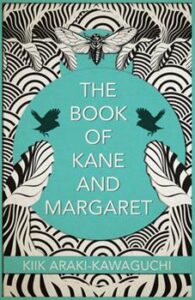Author Kiik Araki-Kawaguchi to visit Wake Forest campus on March 23

Poet and writer Kiik Araki-Kawaguchi will visit the Wake Forest University campus on March 23, 2023, for a student chat and public reading. This event is sponsored by the Dillon Johnston Writers Reading series.
Araki-Kawaguchi events:
Student chat
March 23 from 2:00-3:00 pm
DeTamble Auditorium, Tribble A110
Public reading, followed by a reception and book signing
March 23 at 5:00 pm
Hanes Art Gallery in the Scales Fine Arts Center
Free and open to the public
Kiik Araki-Kawaguchi was many times a community college student, twice a transfer student, twice an undergrad, once an experimental college student, and twice a grad student before figuring out what he wanted to be as a grown-up. Kiik is currently an assistant professor of English and Creative Writing at Western Washington University, and he is the author of Disintegration Made Plain and Easy (1913 Press) and The Book of Kane and Margaret (FC2 / UAP). He is excited to talk with Wake Forest writers about first-year and transfer student transitions, creative writing practice, poetry, fiction, speculative fiction, submitting work for publication, graduate school preparation, and graduate school survival. Be sure to check out his personal website.

The Book of Kane and Margaret
The University of Alabama Press, 2020
WINNER OF FC2’S RONALD SUKENICK INNOVATIVE FICTION PRIZE
A novel about two teenage lovers who disrupt a World War II internment camp in Arizona
Kane Araki and Margaret Morri are not only the names of teenage lovers living in a World War II Japanese relocation camp. Kane Araki is also the name of a man who, mysteriously, sprouts a pair of black raven’s wings overnight. Margaret Morri is the name of the aging healer who treats embarrassing conditions (smelly feet and excessive flatulence). It’s also the name of an eleven-year-old girl who communes with the devil, trading human teeth for divine wishes.
In The Book of Kane and Margaret, dozens of Kane Arakis and Margaret Morris populate the Canal and Butte camp divisions in Gila River. Amidst their daily rituals and family dramas, they find ways to stage quiet revolutions against a domestic colonial experience. Some internees slip through barbed wire fences to meet for love affairs. Others attempt to smuggle whiskey, pornography, birds, dogs, horses, and unearthly insects into their family barracks. And another seeks a way to submerge the internment camp in Pacific seawater.
Categories: Dillon Johnston Writers Reading Series
